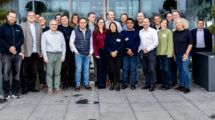Education without boundaries
“The academy of the future does not confine itself to national boundaries”. These words of John Sexton, former President of New York University, in his inspiring closing speech at this year’s networking conference, TNC16, encapsulate the very spirit behind the provision of education for students based in a different country from the awarding institution. Apart from creating considerable revenue streams for both sending and host institutions, this type of student experience contributes undeniably to equipping the global citizen to compete in an increasingly interdependent and multicultural world.
Ok, so the concept in itself is clear, less so its definition. The Brits talk about transnational education, or TNE for short; the Americans refer to it as global education (perceiving a somewhat negative connotation of the term ‘transnational’…). Semantics apart, what does it actually cover? A mindboggling lot (with blurry lines) – ranging from branch campuses, joint international degree programmes, regional ‘gateway’ offices, distance learning, teaching partnerships, MOOCs, and even the quest to cater for the educational needs of migrant populations, such as the Sami who continuously cross the Arctic country borders with their reindeer herds.
What role for NRENs?
But what is the role of the NREN community in all of this? How can we best facilitate this seamless delivery of the capital ‘E’ across borders and continents?
The pre-dinner BoF “Understanding and Supporting Transnational Education: The NREN’s role” on Tuesday at TNC16 offered an ideal opportunity to explore how we can help our institutions thrive in their international operations. The panel discussion brought together representatives from NRENs and higher education institutions across the world to discuss the challenges posed by TNE and the strategies they’ve developed to address these very challenges.
The obvious role consists in providing the necessary IT infrastructure to secure real-time collaboration and communication between students and staff regardless of location. Each approach might be different, but collaboration between NRENs is key.
- Jisc in the United Kingdom, for example, has forged a strategic alliance with CERNET in China and has successfully positioned itself as trusted advisor for UK institutions with TNE aspirations, bringing in-country knowledge, consultancy and brokerage services to the table.
- SURFNet is partnering up with CKLN to support Dutch TNE activities in overseas territories in the Caribbean – a long way to go considering that some islands have not established NRENs yet, let alone fibre. But the ground has been prepared and the seed has been planted.
- Over the last few years, GARR has seen TNE activities in Italy ramping up (well, Americans love Italy after all…) and is currently working on an agreement with Internet2 to provide cost-effective connectivity and service solutions, including campus grouping and a service package for an aggregate number of institutions. Could Internet2 even offer connectivity overseas as a value-added service to its member institutions?
New opportunities and new challenges
Different challenges, approaches and business models, yet a clear need, voiced repeatedly during the session, for the global NREN community to join forces and share expertise and best practice. GÉANT is uniquely positioned to facilitate this knowledge exchange across Europe and with strategic international partners such as Internet2 and CERNET. There is a need to start documenting challenges to manage expectations and to continue learning from each other’s experiences, failures and successes.
Setting up a Special Interest Group (SIG) would seem to be the next logical step to making this pool of knowledge available and allowing the global NREN community to tap into it. Ultimately we are all on the same mission: help ensure a great digital student experience anywhere in the world and help shape the global citizen!








Add Comment